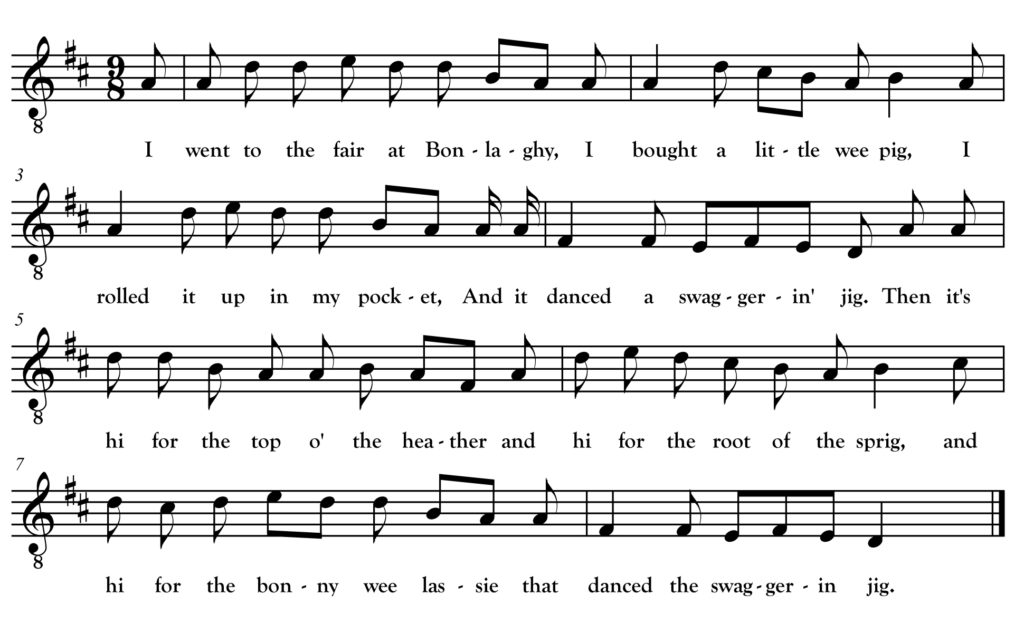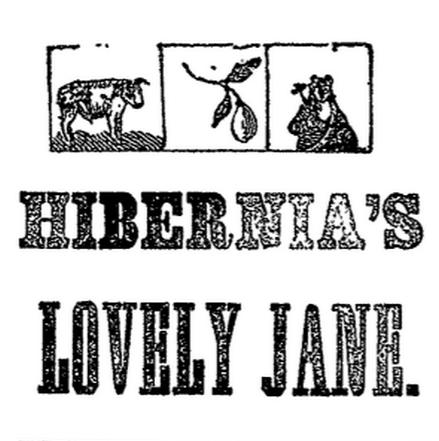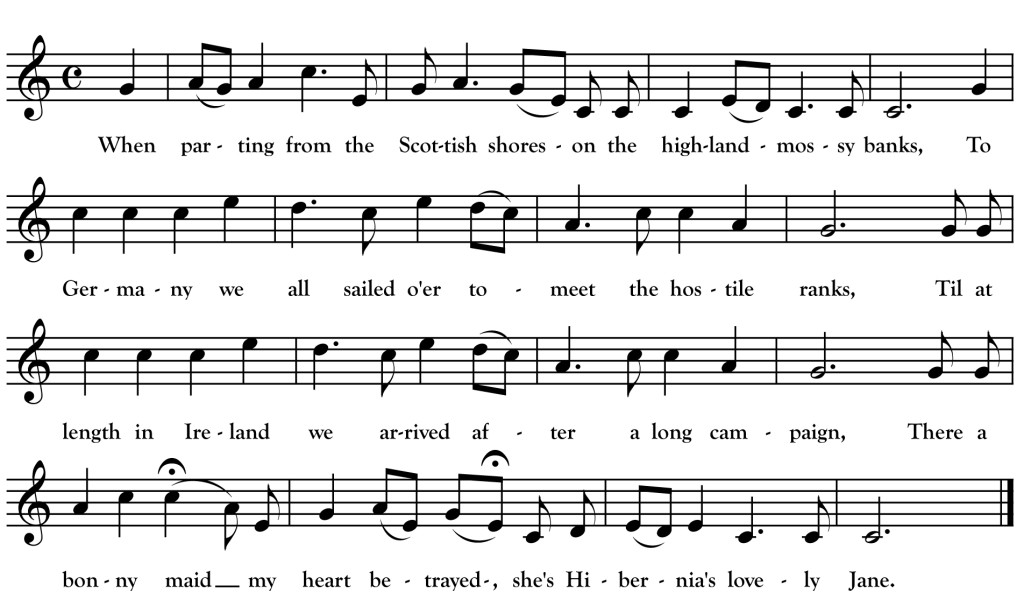The Fair at Bonlaghy

I went to the fair at Bonlaghy,
I bought a little wee pig,
I rolled it up in my pocket,
And it danced a swaggering jig.
Then it’s hi for the top o’ the heather,
And hi for the root of the sprig,
And hi for the bonny wee lassie,
That danced the Swaggering Jig.
I went to the fair at Bonlaghy,
I bought a wee slip of a pig,
And as I was passing the poorhouse,
I whistled the Swaggering Jig.
Then it’s hi for the cups and the saucers,
And hi for the butter and bread,
And hi for the bonny wee lassie,
That danced the Swaggering Jig.
As I being down by the poorhouse,
I whistled so loud and so shrill,
I made all the fairies to tremble,
That lived near McLoughrim Hill.
Then it’s Hi! for the cups and the saucers,
And hi for the butter and bread,
And hi for the bonny wee lassie,
That danced the Swaggering Jig.
As a lover of Irish dance tunes and the Irish song tradition, I have long been on the lookout for jigs, polkas, barn dances and other tunes that have a history of being used both as dance tunes and as the melodies for songs. They are rare birds within the instrumental tradition but these “singable” tunes are some of my favorites.
In the 1930s, the great County Derry song collector Sam Henry collected “Bellaghy Fair” sung to a variant of the slip jig called “The Swaggering Jig” (aka “Give Us a Drink of Water”). Around the same time, Ohio collector Mary Eddy collected a fragment of the same song in Steubenville, Ohio from Mary M. Cox (nee Marion) whose parents were born in Ireland and who learned several songs from an Irish uncle. The Ohio version has Bonlaghy instead of Bellaghy. Bellaghy is a village in Derry. Bonlaghy did not come up in my Google Maps searches of Ireland but Google Books led me to The Gentleman and Citizen’s Almanack for the Year of our Lord, 1732 which lists Bonlaghy, County Longford as the site of one of the “principle fairs of Ireland” happening on July 15th of that year.
The Ohio melody is unique from “The Swaggering Jig” as played by tune players and as sung by Sam Henry’s (unknown) source. It is also only a fragment—missing the second part. The above melody is my attempt to stretch the Ohio melody out over the two parts. I also blended the Ohio text with the Sam Henry text.



